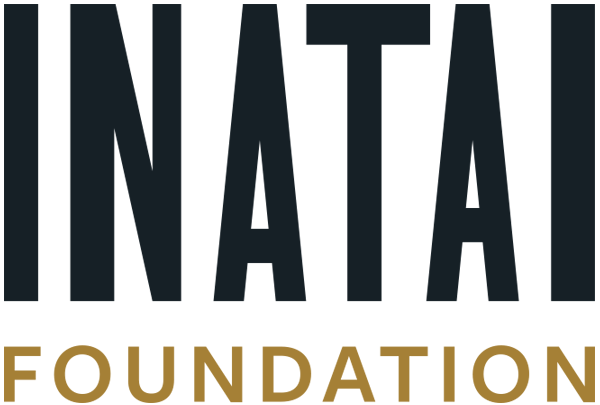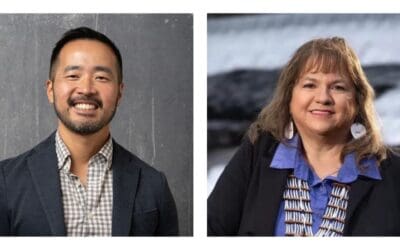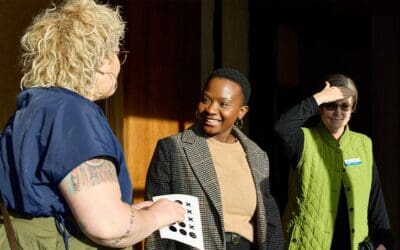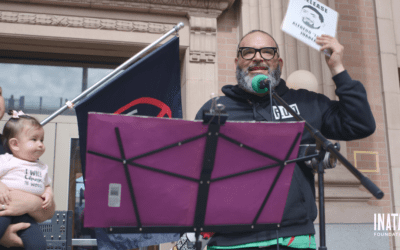Until Feb. 1, 2023, we were Group Health Foundation. This post was written under our former identity. To learn more about our new name, read our announcement here.
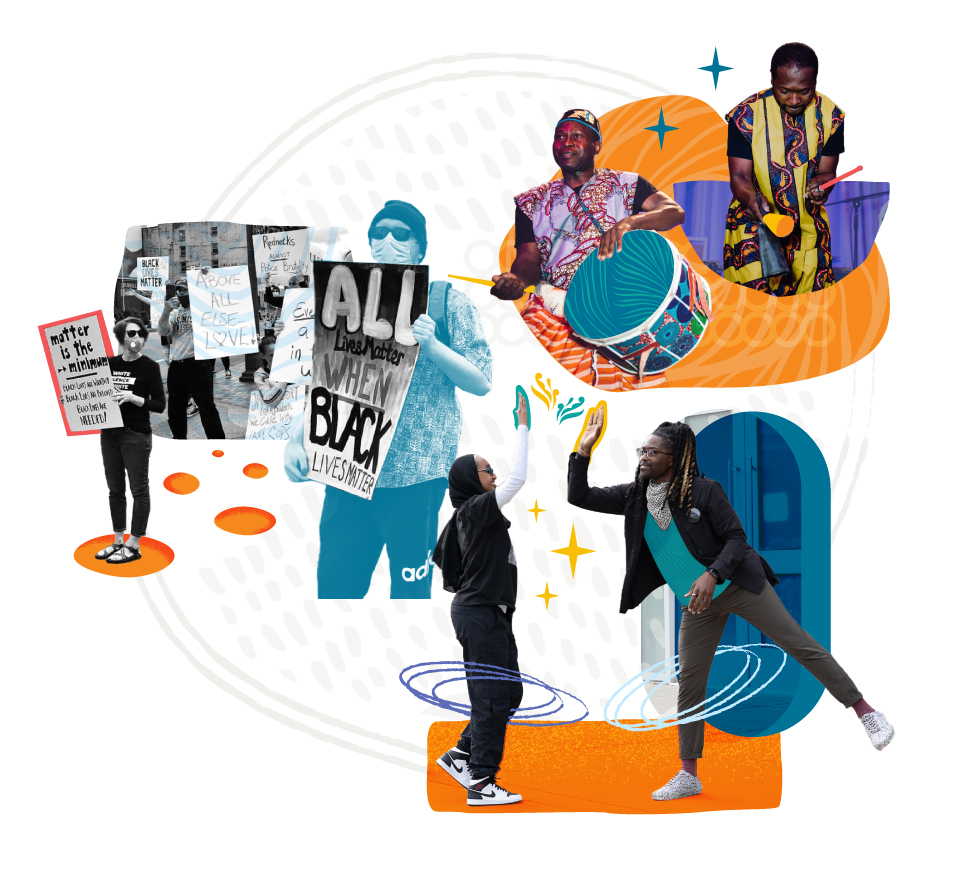
Group Health Foundation is honored to announce 25 new recipients of our Systems, Power, and Action grants, totaling nearly $16 million. Each organization will receive up to $720,000 in flexible funding over three years to advance their advocacy and systems change work. They join last year’s 25 grantees to ensure public policy, public institutions, and public funding are accountable to communities throughout Washington.
Systems, Power, and Action grants will strengthen the capacities of organizations to pursue the longer-term work of building people power and transforming institutions and systems. From nonprofits to coalitions and a tribal nation, grantees know firsthand the everyday effects of racism, ableism, classism, transphobia, colonialism, sexism, and other forms of systemic oppression. Our hope is that these unrestricted dollars will help organizations to not just remedy inequities, but also cure their root causes.
Most of the 2021 recipients are organizations we’ve gotten to know through other grantmaking processes, including Equitable Response and Recovery Funds, sponsorships of events or convenings, and Community Learning Grants. Deepening these relationships through multiple grant opportunities is part of how we operate. We view our grantmaking funds as part of the same whole and believe they work together to create a more equitable future for Washington.
This year’s Systems, Power, and Action grantees work directly in 20 Washington counties and across several regions with many striving to be statewide in their reach. They are led by and serve Black, Native, Latinx, Asian, and Pacific Islander people; members of the LGBTQIA+ community; refugees, immigrants, and undocumented people; incarcerated people; and survivors of domestic violence. They are navigating layered problems and complex systems and have adopted many approaches to advance their communities’ aspirations.
Most grantees expressed finding themselves at similar inflection points, balancing seemingly opposed forces. They show us, though, that transformative change requires a new paradigm—one that rejects “either/or” divisions and embraces the good tension of “both/and” convergences.
Many approaches
Organizations like Stonewall Youth and FYRE prioritize youth outreach, understanding that when young people have opportunities, they can become powerful changemakers for the long term. Others, like Chief Seattle Club and Pacific Islander Community Association of Washington, recognize that data about their communities have been co-opted to tell false stories, so they set up their own data and research teams. They will reclaim their narratives with community-owned-and-led research.
Some are ensuring economic mobility. Whether through offering career training like UTOPIA Washington or serving as a small business incubator like the Carl Maxey Center, grantees seek to empower their community through financial possibility.
Both/and
Many grantees hold the necessary tension between working to restore what was lost or taken and building for what could be. The Confederated Lower Chinook Tribes and Bands expressed this need to look both forward and backward, drawing a direct link between generations of harm and their current work for sovereignty through formal recognition from the United States government.
Nearly all grantees shared how COVID-19 affected their communities and redirected their focus. Organizations had to put out the fires closest to their feet, providing direct services to keep people housed, fed, healthy, and well. But COVID-19 is not the only crisis affecting these communities. Grantees describe the tension between surviving the daily effects of racism and striving to abolish the structures that uphold it, so they may have equitable opportunities to thrive.
Finally, political action organizations like Sage Leaders, Progreso: Latin Progress, and Firelands Together hold the “both/and” tension of working within existing power structures and expanding the capacity of people and communities of color to fundamentally change those structures from within. Whether through get-out-the-vote efforts or preparing people to run for office, all are dedicated to creating policies that truly serve their communities.
Unifying thread
The unifying thread between grantees is a belief in sovereignty and autonomy. By working to transform the carceral system, health care, education, housing, and others, grantees are also transforming the ability of their communities to self-determine their futures and heal past injustices.
We look forward to deepening our relationships with these organizations and seeing their work grow to match their expansive visions. We know that through their leadership more inclusive policies and a more just Washington are possible.
2021 Systems, Power, and Action grant recipients
See a list of 2020 grantees here
For the best viewing experience on your mobile device, please turn it sideways.
| Organization Legal Name | Description | Geography Served |
|---|---|---|
| Affiliated Tribes of Northwest Indians | ATNI represents nearly 50 Northwest tribal governments and advocates for their interests to national Indian and non-Indian organizations and governments through a representative system of committees led by community leaders and elders. | Pacific Northwest |
| API Chaya | API Chaya, founded by and for immigrant communities to develop culturally relevant paths to safety, serves survivors of gender-based violence and human trafficking. They provide direct services while building a powerful base that addresses a wide range of needs in the API community and beyond. | King, Pierce, and Snohomish counties |
| Asia Pacific Cultural Center | Asia Pacific Cultural Center serves as an interactive cultural crossroads between local and international communities, as well as a social justice organization committed to civic education and policy making that will build racial equity, raise the voices of people, and strengthen communities. | South Puget Sound |
| Carl Maxey Center | The Carl Maxey Center is a Black-led organization with the goal of uplifting, empowering, and transforming Spokane’s African American community from the inside out. | Spokane County |
| Central Washington Justice For Our Neighbors | Central Washington Justice For Our Neighbors serves low income immigrant and refugee communities in Central and Eastern Washington. They provide free immigration legal services while engaging in advocacy work to create systemic change through pro-immigrant policy change. | Central and Eastern Washington with a focus on Kittitas, Grant, Yakima, Benton, Franklin, and Walla Walla counties |
| Chief Seattle Club | Chief Seattle Club is dedicated to physically and spiritually supporting American Indian and Alaska Native people. They provide food, primary health care, housing assistance, an urban Indian legal clinic, a Native art job training program, as well as frequent cultural and community-building outings for members. In fall 2021, they will begin to open 80 affordable permanent housing units at ʔálʔal in Pioneer Square. | King County |
| CIELO Project Radio Ranch | CIELO promotes community, self-sufficiency, and leadership among Latinx and other immigrant and refugee people in the South Puget Sound area through educational support for children and adults, mental health counseling, advocacy services for victims of crime, and other direct services. | Lewis, Mason, and Thurston counties |
| Communities of Color Coalition | C3 was founded by/for communities of color to create sustainable and radical change that fosters liberation and healing from oppressive systems for BIPOC communities. To achieve their vision of a community free of racial intolerance, they focus on advocacy, education, and direct service. | Snohomish County |
| Community Action Center | Community Action Center works for the day when all Whitman County residents live in safe affordable housing and have access to healthy food. | Whitman County |
| Confederated Lower Chinook Tribes and Bands | The Chinook Indian Nation confederates the five westernmost Chinookan speaking tribes. Their decades-old constitution codifies who they are and identifies their constituent tribes and their aboriginal territories in the broad lower Columbia River region. | Pacific and Wahkaikum counties and neighboring communities in Oregon |
| Firelands Workers Action | Firelands Workers Action builds multiracial working-class power among rural, low-wage workers in southwest Washington and Olympic Peninsula timber counties to organize for a just economy that centers the health and wellbeing of people and the land for generations to come. | Grays Harbor and Pacific counties |
| Foundation for Youth Resiliency and Engagement | FYRE is a youth-serving nonprofit located in rural Okanogan County that increases accessibility to whole-person wellness services for traditionally underserved youth ages 12-24. They are dedicated to addressing systems change, social inequities, and promoting joy and resilience for young people. | Okanogan County |
| Freedom Project | Freedom Project works alongside the community to dismantle the institution of mass incarceration and heal its traumatic effects. They create space for collective healing and liberation by seeing each other for our humanity, meeting needs as defined by individuals and by the community, and amplifying the power that already exists among us. | King, Snohomish, Pierce, and Spokane counties |
| MIA Mujeres in Action | Mujeres in Action provides culturally responsive intervention services primarily to Latinx survivors of domestic violence and sexual assault in the Spokane area. | Spokane County |
| Northwest Cooperative Development Center | NWCDC assists workers, residents, and others to build cooperatives to meet their basic needs, secure community ownership, and practice democratic governance. They work with co-ops to deliver technical assistance, overcome organizing hurdles, and support each other in building the cooperative economy. | Pacific Northwest |
| Pacific Islander Community Association of Washington | PICA-WA lives out the indigenous values of Pasifika communities through speaking truth to systems of power while providing social supports and cultural spaces for the community to thrive. Their mission is threefold: establish a cultural home, center community power, and further Pasifika NH/PI wellness. | Western, Southwest, and Eastern Washington |
| Pride Foundation | TRANSform Culture is a program of Pride Foundation that looks to support communication, organizing, and advocacy that contribute to cultural transformation that is essential to creating safety, equity, and wellbeing for the breadth of transgender and gender diverse communities in the Pacific Northwest. | Washington, Alaska, Idaho, Montana, and Oregon |
| Progreso: Latino Progress | Progreso focuses on civic engagement, coalition building, and advocacy of intersectional issues affecting Latinos and communities of color in Washington. Led by the community, they advocate with a focus on education, immigration, health equity, environmental justice, criminal justice, and voting rights. | Yakima, Benton, Franklin, and King counties |
| Refugee & Immigrant Services Northwest | RISNW is led by and serves refugees, immigrants, and migrants, including COFA nationals in Snohomish, Skagit, and Whatcom Counties. They provide a continuum of culturally/linguistically appropriate services so their communities are healthy and economically secure, with voice to affect policy change. | Snohomish, Skagit, and Whatcom counties |
| Sage Leaders | Sage Leaders cultivates deep democracy in Washington state by developing Black, Indigenous, and People of Color community leaders for civic and elected leadership. They envision a living economy where Black, Indigenous, and People of Color workers, families, and communities thrive and where we live in sustainable relationship with the land. | Statewide, with a focus in Pierce County, South Seattle, and South King County |
| Seattle Indian Health Board | SIHB is led by and serves urban Native people from Seattle and across the state. Their approach centers Indigenous knowledge and spans health care, behavioral health, oral health, social services, public health, and policy & advocacy efforts. | King County |
| Stonewall Youth | Stonewall Youth is a social justice organization by and for LGBTQ+ youth. They support youth through an integrated model of direct services, leadership and professional development, mutual aid, activism and community organizing, and by intentionally counteracting oppression in all their work. | Thurston, Lewis, and Mason counties |
| Surge Reproductive Justice | Surge Reproductive Justice is a Black queer led organization based in South Seattle that uses the reproductive justice framework to shift power and develop community directed policy. They work on reproductive justice aligned issues ranging from birth justice, community directed policy, and bodily autonomy. | King County |
| United Territories Of Pacific Islanders Alliance – Washington (UTOPIA WA) | UTOPIA Washington is a queer and trans people of color-led grassroots organization born out of the struggles, challenges, strength, and resilience of the Queer and Trans Pacific Islander (QTPI) community in South King County. | Statewide |
| Washington State Coalition Against Domestic Violence | WSCADV is a network of over 70 domestic violence programs across Washington. Their work includes visionary leadership, supporting member programs, and engaging the public to play a role in ending domestic and sexual violence. | Statewide |
